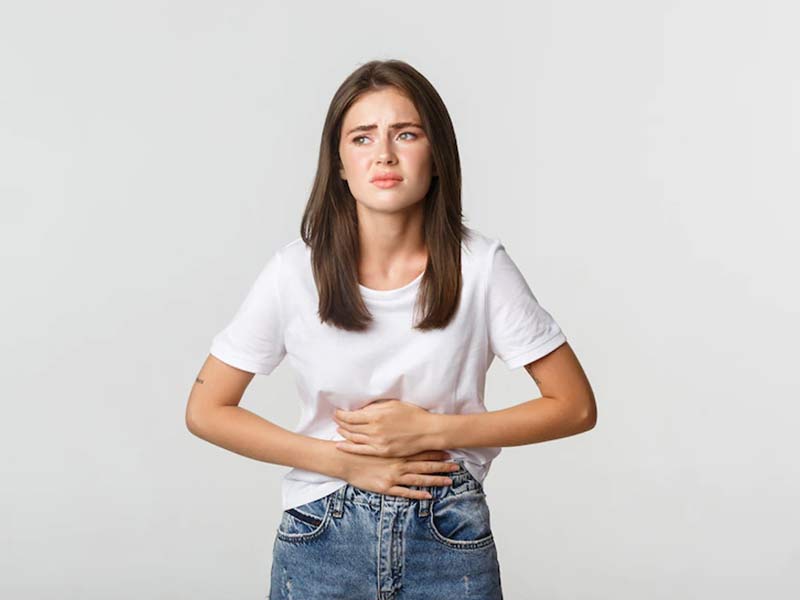
Why is it that stomach pain is more common in women than in men? There are many causes of stomach pain. Most causes are not serious. Mild stomach pain can be caused by an upset stomach, gas pains, or eating too much. There are many organs in the abdomen that can also cause pain in women. In women, pain can also be caused by female organs or pregnancy. All women of childbearing age with abdominal pain should consider the chance that they are pregnant. However, stomach pain is more likely to be serious in an older person. Keep reading to know about the most common causes of stomach pain in women.
Table of Content:-
Causes of stomach pain in women
Eating too much can cause an upset stomach and mild stomach pain. As a woman, you will experience some discomfort or pain in your abdomen from time to time. It could even be due to simple reasons such as poor sleeping habits or something you ate that is distressing your stomach. However, issues arising from the digestive tract are not always the root cause of abdominal pain. Here are the main causes of stomach pain in women:
1. Indigestion

When you feel discomfort in your upper abdomen or you feel full soon after you start eating, these are the symptoms of Indigestion. If you are suffering from indigestion, you may feel some burn or discomfort or bloating in the upper abdominal, uncomfortable after a meal or early fullness during a meal, or you may have nausea. This can be caused due to smoking, fatty or greasy food, anxiety, overeating or eating to quickly, too much alcohol, chocolate, alcohol or carbonated beverages. Certain antibiotics, pain relievers and iron supplements can help in providing relief.
Also read: Abdominal Pain: All You Need To Know
2. Menstrual cramps
One of the most common causes of stomach pain in women is menstrual cramps. During your menstrual period, your uterus contracts to help expel its lining. Hormonelike substances (prostaglandins) involved in pain and inflammation trigger the uterine muscle contractions. Higher levels of prostaglandins are associated with more-severe menstrual cramps.
3. Ovarian cyst
Most cysts don't cause symptoms and go away on their own. However, a large ovarian cyst can cause pelvic pain and stomach ache. The pain can feel like a dull or sharp ache in the lower abdomen on the side of the cyst. Fullness or heaviness in your abdomen is also a common symptom of large ovarian cyst. Ovarian cysts are common, especially with women in the childbearing age as well as expectant mothers. The pain can be felt on either side of your lower stomach, depending on which ovary had the cyst. You may experience spotting as well.
4. UTI

UTIs or urinary tract infections can typically cause bladder-specific symptoms such as cloudy urine or pain when you urinate. However, the bacteria causing the infection can also affect your abdomen, specifically your lower abdomen. You may experience a lot of pressure and pain, and bloating can occur. Sometimes the only symptom is pain in the lower abdomen.
Also read: What Causes Severe Stomach Pain After Eating During Pregnancy? Doctor Explains
5. Pelvic Inflammatory Disease (PID)
PID is an infection or inflammation of the female reproductive organs. It can affect the ovaries, fallopian tubes, uterus, or a combination. The pelvic inflammatory disease usually occurs when sexually transmitted bacteria from the vagina or cervix spread to other reproductive organs. PID often causes no symptoms but might be detected later if you develop chronic pelvic pain or have trouble with conception.
The discomfort may also feel like pressure, fullness, or heaviness in the lower abdomen. Symptoms of abdominal pain may worsen during urination or bowel movements, intercourse, or long periods of standing or sitting. Certainly, you should consider seeking medical attention if the pain persists.
Also watch this video
How we keep this article up to date:
We work with experts and keep a close eye on the latest in health and wellness. Whenever there is a new research or helpful information, we update our articles with accurate and useful advice.
Current Version